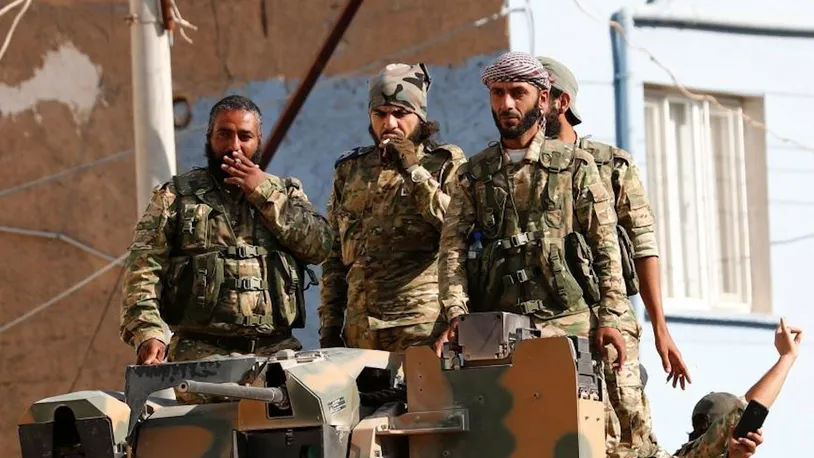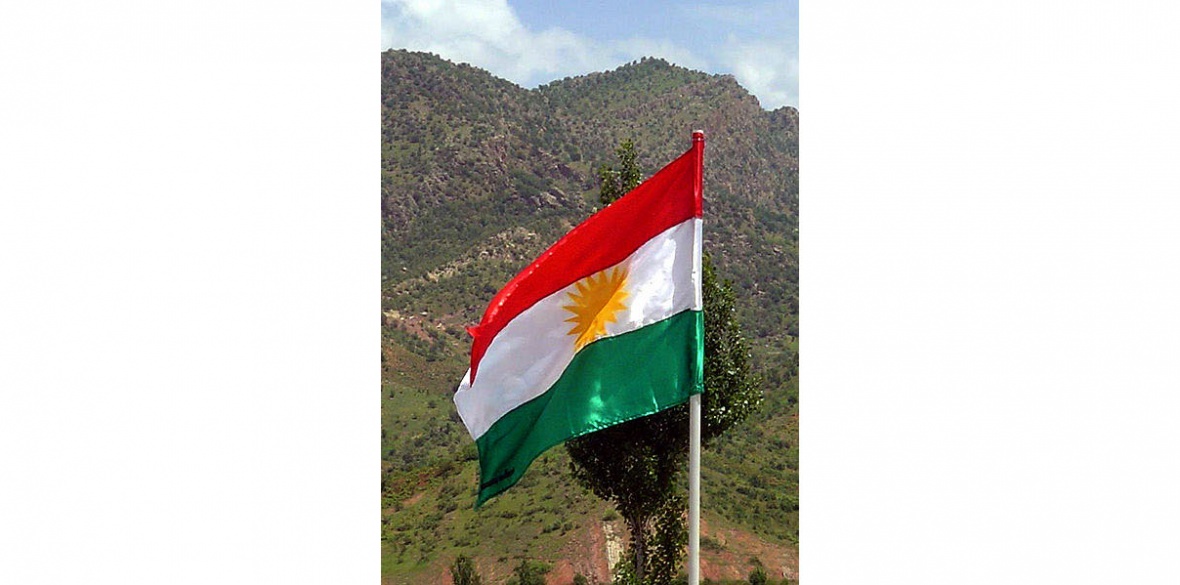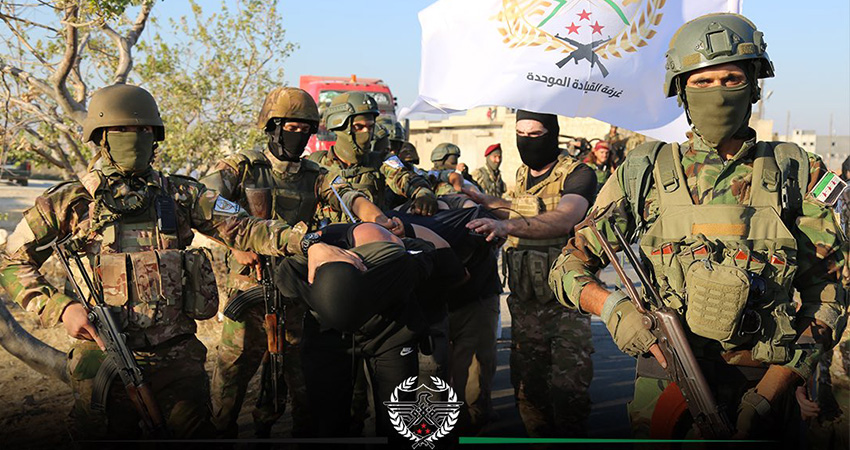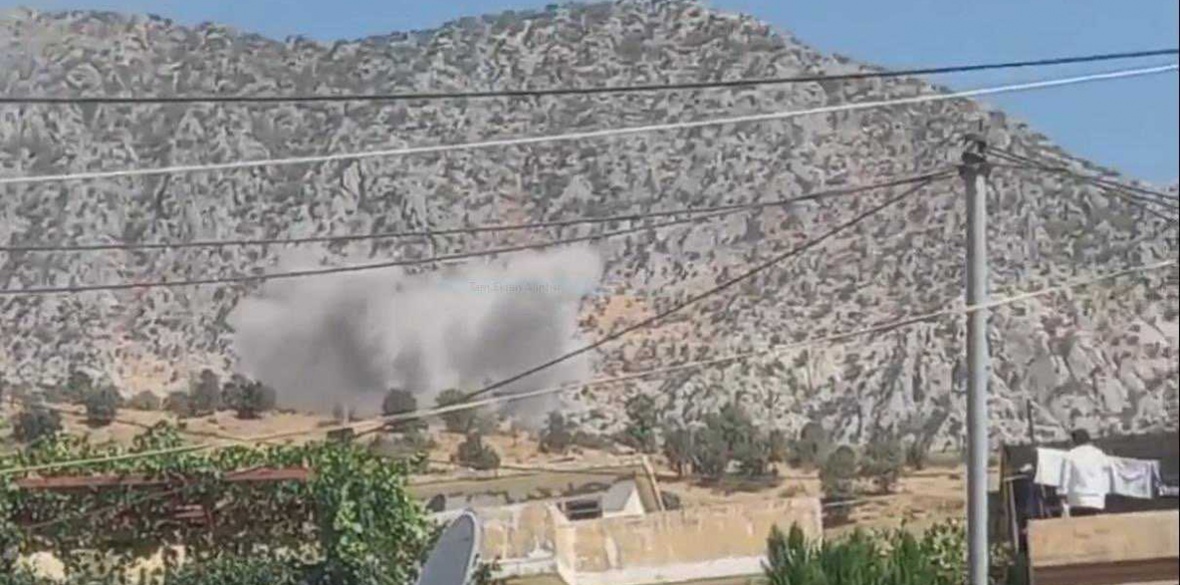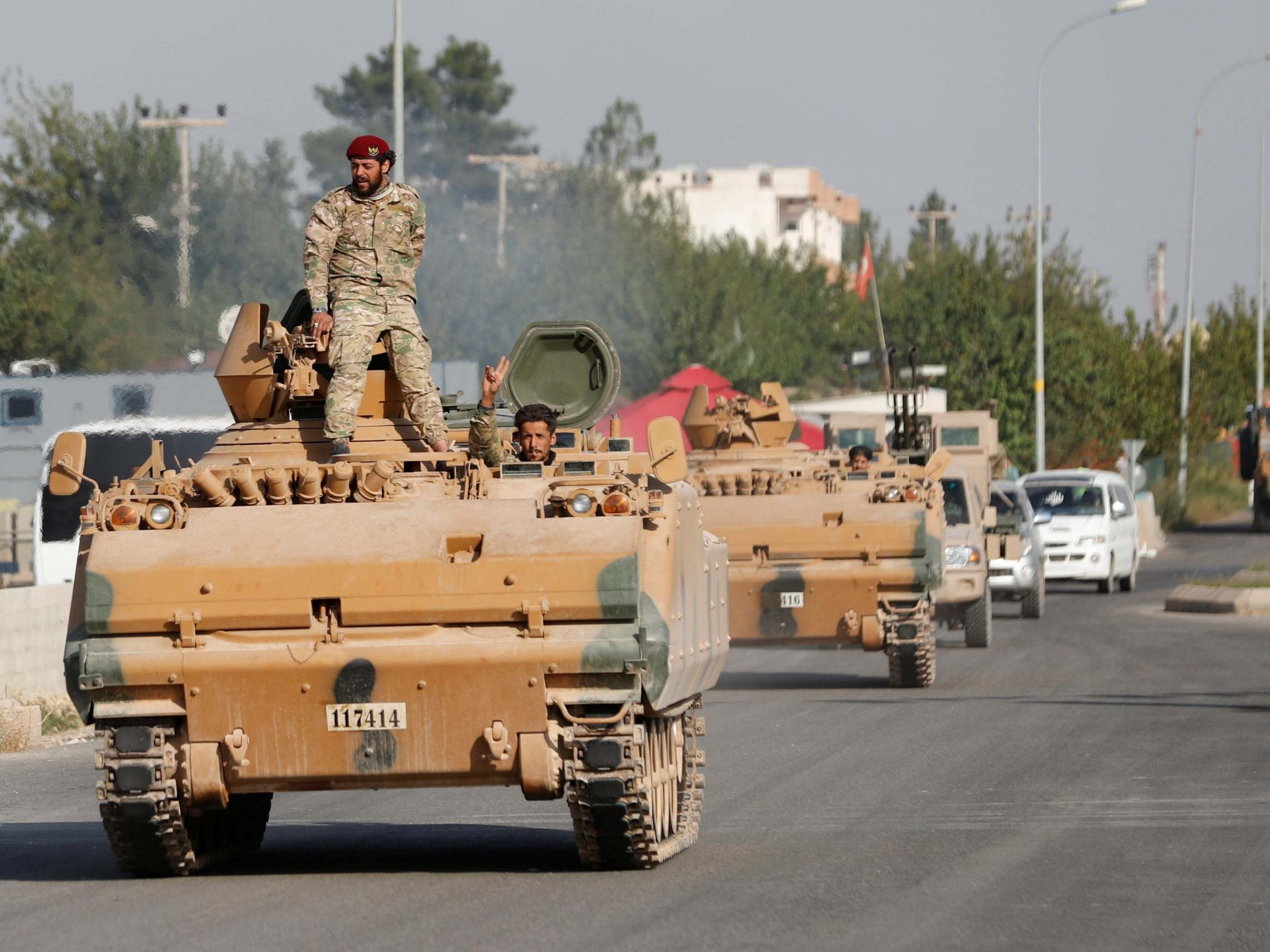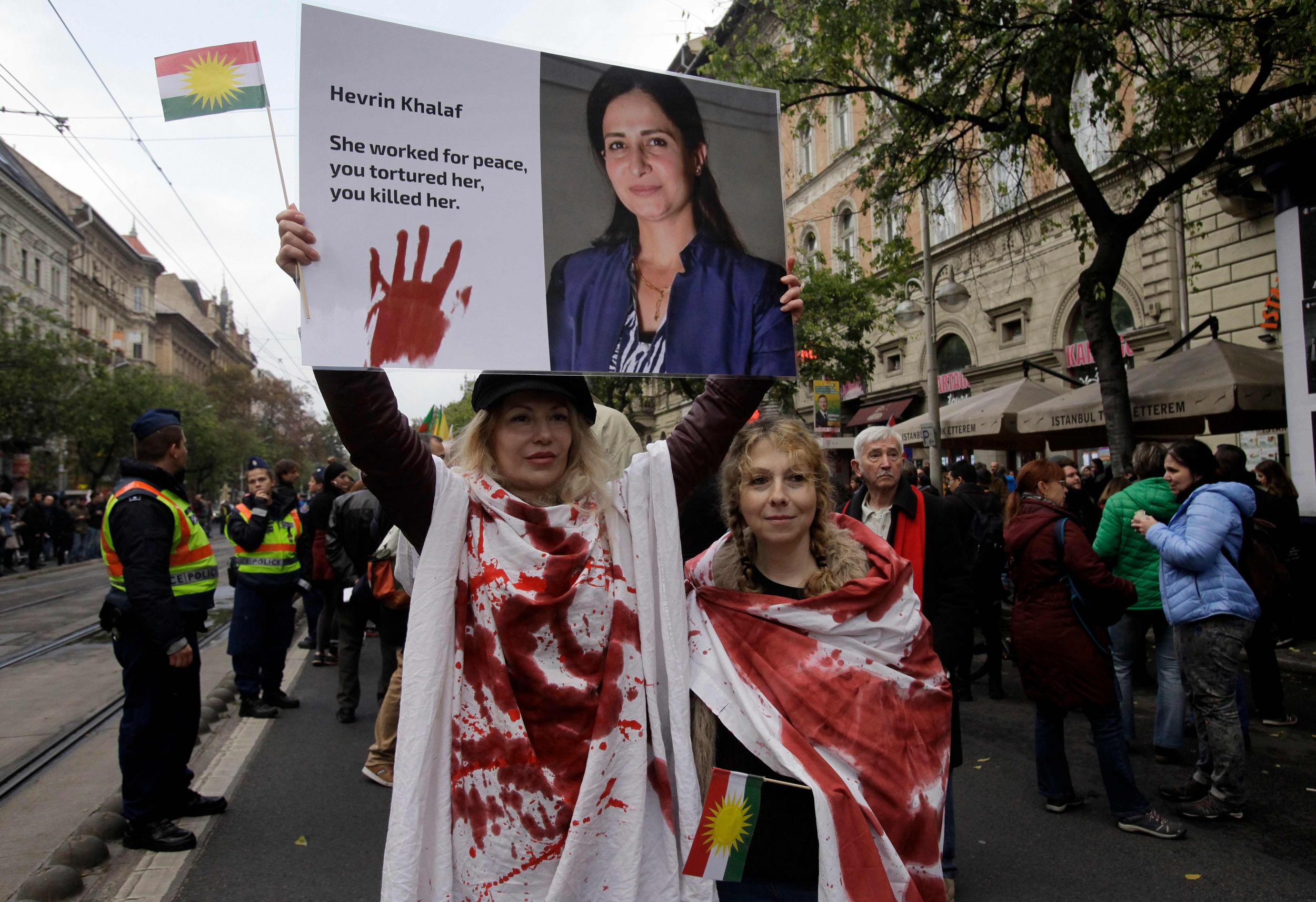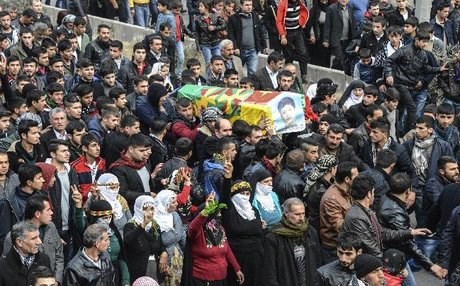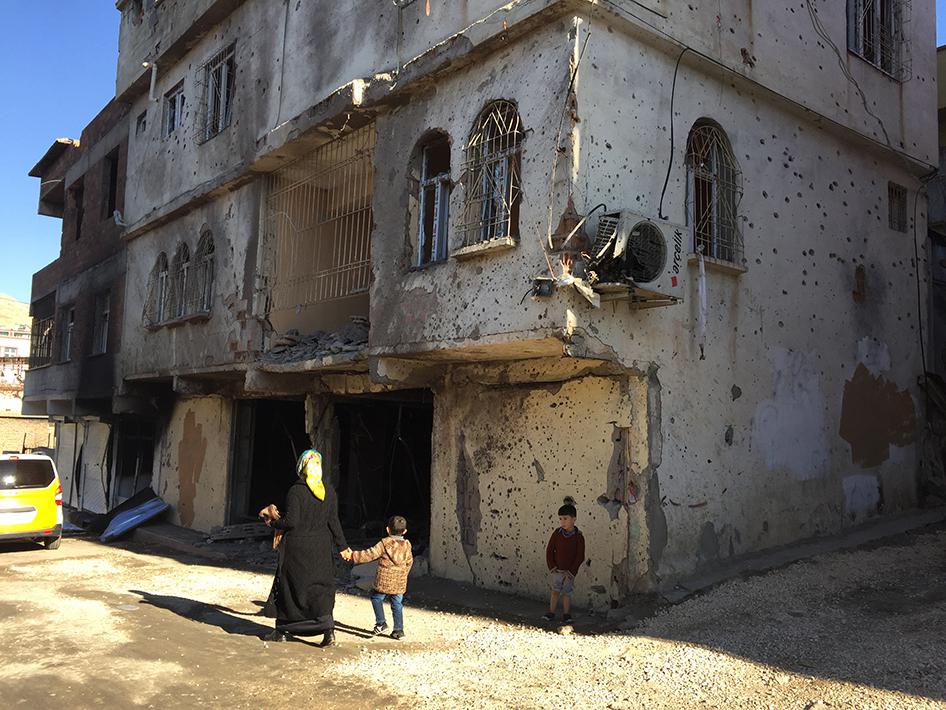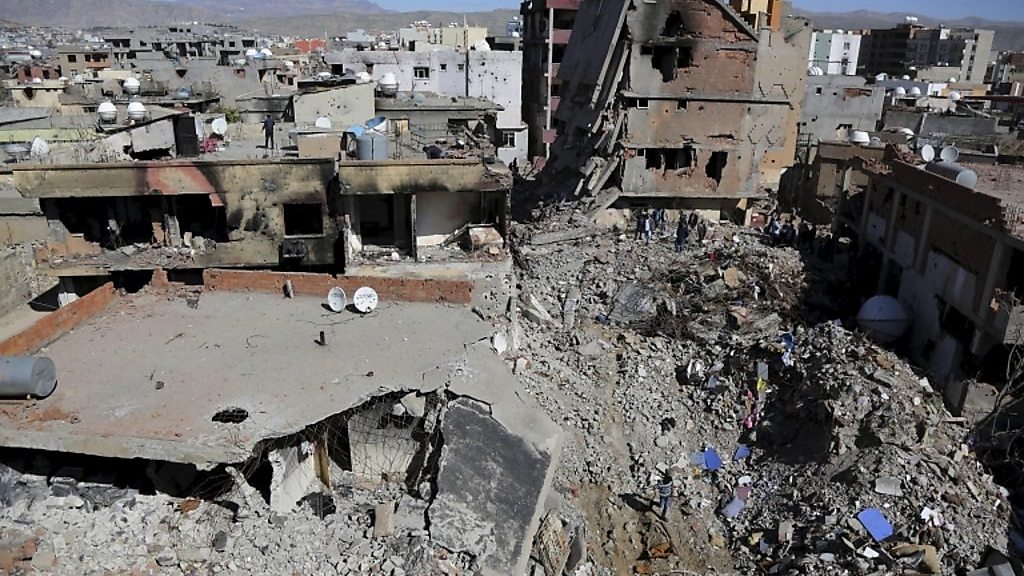ERBIL (Kurdistan 24) – China’s Deputy Permanent Representative to the United Nations, Ambassador Geng Shuang, called Turkey’s operations in northeast Syria illegal and criticized Ankara for cutting water supplies from that country’s Alouk water station on Wednesday.
China’s Deputy Permanent Representative to the United Nations, Ambassador Geng Shuang, called Turkey’s operations in northeast Syria illegal. “Since Turkey illegally invaded northeastern Syria, it has repeatedly cut off the water supply service from the Alouk water station,” he said.
Turkish-occupied Afrin. Member of the local Turkish-backed city council attacks a 65 year-old civilian on the street.
TURKISH jets continued to pound Kurdish villages in Qandil and other parts of Iraqi Kurdistan today, amid growing demands for investigations over its alleged use of chemical weapons.
Missiles struck a number of villages in simultaneous attacks at around 10.30am local time, according to eyewitnesses, although no casualties were reported.
Salih Kado said that the occupying powers of Kurdistan agree to exterminate the Kurds because their economic and political interests are intertwined. He stressed that Turkey’s use of chemical weapons is part of the failed policy and a reaction to the defeat.
Secretary-General of the Syrian Kurdish Left Party, Saleh Kado
ERBIL (Kurdistan 24) – According to a report released earlier this week by a human rights organization, at least 877 civilians throughout 2020 were arrested by Turkish-backed militias and Turkish intelligence in the Afrin region of northern Syria.
This comes despite promises by the Syrian opposition to investigate and stop abuses by Turkish-backed groups in areas occupied by Turkey and its proxy militias, such as Afrin, Tal Abyad, and Ras al-Ain (Serekaniye).
- Efrin (Afrin)
- Kidnappings & Abductions
- Missing Women of Afrin
- Rojava (Kurdish region in Syria)
- Serê Kaniyê (Ras al-Ayn) (Rojava (Kurdish region in Syria))
- Tal Abyad (Rojava, Kurdish Region in Syria)
- Turkey’s proxy militias
- Turkish-backed Syrian National Army (SNA)
- United Nations’ Independent International Commission of Inquiry on Syria
- War Crimes
- War Crimes (Turkey)
ERBIL (Kurdistan 24) – A new report issued on Tuesday by the United Nations’ Independent International Commission of Inquiry on Syria suggests that Turkish-backed groups in the embattled Middle Eastern nation have “committed torture, cruel treatment and outrages upon personal dignity, including rape and other forms of sexual violence, which constitute war crimes.”
It stated that the Turkish-supported Syrian National Army (SNA) continues to unlawfully arrest Kurdish citizens in areas under their control in northern Syria such as in Tal Abyad, Afrin, and Ras al-Ain (Serekaniye).
This report documents the arrests of 21 persons, one of whom died under torture, in Ras al-Ayn/Serê Kaniyê and Tal Abyad, as well as the arrest of 31 people, including women and children, in Afrin
The human rights organization “STJ registered the release of only 7 detainees, while the remaining 45 continue to be unaccounted for, including the women and children.”
TURKISH war planes have bombed a Kurdish village in Iraqi Kurdistan with chemical weapons, local officials told the Morning Star, demanding that war-crime investigations be opened.
Refugees accuse soldiers of ethnic cleansing as some 200,000 displaced
UN report is based on 538 witness interviews, documents, satellite imagery, photographs and videos relating to events away from the major battle zones during the first half of this year, Peter Stubley writes
On September 11, 2020, two Kurdish farmers, Servet Turgut and Osman Şiban, were thrown from a Turkish military helicopter in the southeastern province of Van, Turkey. Turgut died from his injuries on September 30th, and Turkish authorities implausibly claimed that he’d fallen from a high rock formation while trying to escape arrest by the Turkish Jandarma.
This edited volume, comprising chapters by leading academics and experts, aims to clarify the complexity of Turkey’s Kurdish question. The Kurdish question is a long-standing, protracted issue, which gained regional and international significance largely in the last thirty years. The Kurdish people who represent the largest ethnic minority in the Middle East without a state have demanded autonomy and recognition since the post-World I wave of self-governance in the region, and their nationalist claims have further intensified since the end of the Cold War. The present volume first describes the evolution of Kurdish nationalism, its genesis during the late nineteenth century in the Ottoman Empire, and its legacy into the new Turkish republic. Second, the volume takes up the violent legacy of Kurdish nationalism and analyzes the conflict through the actions of the PKK, the militant pro-Kurdish organization which grew to be the most important actor in the process. Third, the volume deals with the international dimensions of the Kurdish question, as manifested in Turkey’s evolving relationships with Syria, Iraq, and Iran, the issue regarding the status of the Kurdish minorities in these countries, and the debate over the Kurdish problem in Western capitals.
Human Rights Watch conducts regular, systematic investigations of human rights abuses in some seventy countries around the world. It addresses the human rights practices of governments of all political stripes, of all geopolitical alignments, and of all ethnic and religious persuasions. In internal wars it documents violations by both governments and rebel groups. Human Rights Watch defends freedom of thought and expression, due process and equal protection of the law; it documents and denounces murders, disappearances, torture, arbitrary imprisonment, exile, censorship and other abuses of internationally recognized human rights.
Human Rights Watch began in 1978 with the founding of its Helsinki division. Today, it includes five divisions covering Africa, the Americas, Asia, the Middle East, as well as the signatories of the Helsinki accords. It also includes five collaborative projects on arms transfers, children’s rights, free expression, prison conditions, and women’s rights. It maintains offices in New York, Washington, Los Angeles, London, Brussels, Moscow, Dushanbe, Rio de Janeiro, and Hong Kong. Human Rights Watch is an independent, nongovernmental organization, supported by contributions from private individuals and foundations worldwide. It accepts no government funds, directly or indirectly.
The staff includes Kenneth Roth, executive director; Cynthia Brown, program director; Holly J. Burkhalter, advocacy director; Robert Kimzey, publications director; Jeri Laber, special advisor; Gara LaMarche, associate director; Lotte Leicht, Brussels office director; Juan Méndez, general counsel; Susan Osnos, communications director; Jemera Rone, counsel; Joanna Weschler, United Nations representative; and Derrick Wong, finance and administration director.
The regional directors of Human Rights Watch are Peter Takirambudde, Africa; José Miguel Vivanco, Americas; Sidney Jones, Asia; Holly Cartner, Helsinki; and Christopher E. George, Middle East. The project directors are Joost R. Hiltermann, Arms Project; Lois Whitman, Children’s Rights Project; Gara LaMarche, Free Expression Project; and Dorothy Q. Thomas, Women’s Rights Project.
The members of the board of directors are Robert L. Bernstein, chair; Adrian W. DeWind, vice chair; Roland Algrant, Lisa Anderson, Peter D. Bell, Alice L. Brown, William Carmichael, Dorothy Cullman, Irene Diamond, Edith Everett, Jonathan Fanton, Jack Greenberg, Alice H. Henkin, Harold Hongju Koh, Jeh Johnson, Stephen L. Kass, Marina Pinto Kaufman, Alexander MacGregor, Josh Mailman, Andrew Nathan, Jane Olson, Peter Osnos, Kathleen Peratis, Bruce Rabb, Orville Schell, Sid Sheinberg, Gary G. Sick, Malcolm Smith, Nahid Toubia, Maureen White, and Rosalind C. Whitehead.
The European Court of Human Rights on Tuesday issued a landmark ruling on one of the many incidents of killings and disappearances of Kurdish civilians by Turkish government forces in the early 1990s at the height of the conflict with the armed Kurdistan Workers’ Party (PKK). During that period the army forcibly evacuated and burned thousands of villages, in some cases killing villagers through shelling or aerial bombardment.
The European Court held Turkey responsible for the deaths of 33 people, including women and children, in an airforce bombing raid on the villages of Kuşkonar and Koçağılı on March 26, 1994.
In 1995 Human Rights Watch documented the bombing, which was the subject of an official cover-up, in a report on Turkey’s violations of the laws of war in the southeast in the early 1990s. Human Rights Watch talked to some witnesses of that attack again for a report last year on the importance of securing justice for victims of state-perpetrated killings and disappearances.
In its ruling on Tuesday, the European Court ordered Turkey to pay €2.3 million in damages because of its violations of the right to life and inadequate investigation into the deaths, and took an important and unusual further step, ruling that Turkey should now conduct a full domestic investigation into the case, “with a view to identifying and punishing those responsible.”
This ruling sends a message that there is an obligation under international law for Turkey to ensure justice for the victims and their families, even 20 years later.
But there are wider implications, and for more recent cases. One is the December 28, 2011 Turkish bombing that killed 34 Kurdish civilian men and boys at the Iraqi Kurdistan border as they attempted to return to their villages in the Uludere district of Şırnak, carrying smuggled goods.
Two years on, the case file has been passed from one prosecutor to another, and some families of victims have been fined for illegally crossing the border that night.
The Turkish government should read Tuesday’s ruling as a reminder that while embarking on important investigations into past abuses, it should show similar commitment to properly investigate allegations of human rights violations on its own watch. The European Court has made clear that this isn’t just a choice, but an obligation.
The former Van Gendarmerie General Staff Colonel of Van, Vecihi Halil İyigün, stands accused of having executed two members of the militant Kurdistan Workers’ Party (PKK) and one civilian in the course of an operation in the Çaldıran district of Van (south-eastern Anatolia) although the three men had surrendered already.
A Turkish special forces officer has been arrested for the January 15 death of a 12-year-old Kurdish boy during demonstrations in the town of Cizre in southeastern Turkey, the Dogan News Agency (DHA) reported.
It said the police officer, identified only by the initials M.N.G., was arrested in Ankara for the shooting death of Nihat Kazanhan, who local witnesses have said was killed as police teams were traveling through predominantly-Kurdish Cizre during unrest in the town.
The suspect was arrested after another police officer, who had been detained for the shooting, confessed that his colleague M.N.G. had done the shooting and testified to a cover-up.
Kurdish civilians, including women, children and elderly residents, have been killed during security operations and armed clashes since July 2015 in southeastern Turkey. Local human rights groups have recorded well over 100 civilian deaths and multiple injuries. After unprecedented military deployments to the region in recent days, several cities are under curfew and some of their neighborhoods the scenes of shelling by the military and heavy clashes with armed Kurdish groups. The civilian death toll is likely to rise steeply in the coming days.
ISTANBUL – U.S.-based Human Rights Watch has accused Ankara of blocking international scrutiny over what it calls widespread human rights violations by Turkish security forces in its crackdown on Kurdish rebels.
The Human Rights Watch report focused on fighting between Turkish security forces and Kurdish rebels in Cizre. The town is a center of Kurdish nationalism that has witnessed some of the most intense fighting since last year’s collapse of a peace process with the Kurdish rebel group the PKK.
Human Rights Watch report author Emma Sinclair Webb alleges security forces are covering up abuses.
“There are a huge number of civilians who have been killed during security operations. And there is almost no sign of an investigation into these deaths, and there is an attempt to cover up. We were prevented from visiting families who had lost relatives during the security operations,” she said.
The United Nations wants to send investigators to examine allegations that Turkish forces massacred around 100 civilians in the Kurdish town of Cizre.
It relates to an operation carried out against the PKK, armed Kurdish separatists classified by the EU and the US as terrorists.
Turkish military forces and a coalition of Turkey-backed Syrian armed groups have displayed a shameful disregard for civilian life, carrying out serious violations and war crimes, including summary killings and unlawful attacks that have killed and injured civilians, during the offensive into northeast Syria, said Amnesty International today.
The organization gathered witness testimony between 12 and 16 October from 17 people including medical and rescue workers, displaced civilians, journalists, local and international humanitarian workers, as well as analyzing and verifying video footage and reviewing medical reports and other documentation.
Two and a half years after Turkey and its jihadist allies invaded the predominantly Kurdish region of Afrin in northwestern Syria, excessive violence, looting and expulsions continue to occur in the formerly self-governing canton. There are almost daily reports of kidnappings, arbitrary arrests, torture, rape and murder in the occupied territories. The cases are increasing from month to month and are becoming more and more brutal as the activities of the jihadists become part of everyday life. Numerous brutal crimes were also reported in August this year.. Below, the crimes such as murder and kidnapping are documented from the month of August. In addition, figures are given for crimes such as death, torture, abduction and rape from the occupation of Afrin in May 2018 to the present day. As there is no access to the occupied territories for independent human rights observers and organizations (after the occupation of Afrin in 2018, Sere Kaniye and Gire Spi were occupied in October 2019), access to information on human rights violations is very difficult. Human rights organizations and activists conduct research in the strictest secrecy in order to protect the population remaining in Afrin. The cases documented here are those that come to light with the help of these organizations and activists. The number of unreported cases of human rights violations is most likely much higher.
“For over a year, the Turkish army has illegally occupied the city and region of Afrin. This has particularly impacted the women of the region, with rape, kidnapping and gendered violence systematically used as weapons. The Turkish army and the jihadist militias they fund and support work together in these aims, and have forcibly imposed Sharia law on women of all different beliefs.” Kongra Star
In 2018 Turkish armed forces invaded and took control of the northern Syrian region of Afrin, which was largely populated by Kurds, Yazidis, Christians, and other minority groups. The Turks and their allied militias drove hundreds of thousands of people out of Afrin, many of whom sought refuge in northeastern Syria, governed by the Autonomous Administration of North and East Syria (AANE). At the end of 2019, Turkey also invaded northeastern Syria after President Trump ordered most US forces out of Syria.

